You're entirely bonkers. But I'll tell you a secret: all the best people are.
Alice in Wonderland
Without the thorough vetting of a New Yorker fact-checker I will go out on a limb and suggest that Enrico Rivetto is the only winemaker in the Barolo region to exhibit prominently on his website a quote from Lewis Carroll's Alice in Wonderland. Is it madness to reduce your very profitable yields of Nebbiolo in a quest to have not just vineyards but to follow a creed of diversified farming in an attempt to rethink the idea of vineyard as an "agricultural living organism?"
It is not a controversial statement to say that monoculture dominates in the Barolo and Barbaresco wine regions. Driving through the curvy, narrow roads one encounters a vista dominated by row after row of valuable Nebbiolo grapes. Azienda Agricola Rivetto is different.
The winery and farm are located on a picturesque hill overlooking the Serralunga D’Alba castle near the medieval town of Sinio. Enrico Rivetto is the fourth generation in a family that began producing wine in 1902. They have been making wine in their Sinio farmhouse since 1938 and today they own 37 hectares, 20 of which are planted to vine.
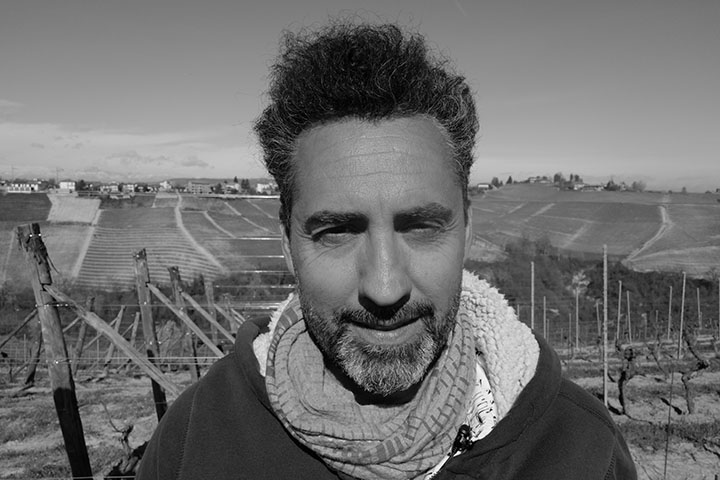 Enrico joined the family business full time in 1999 and became enchanted with the organic path. He spearheaded the planting of ancient strains of corn and wheat, aromatic herbs and perennial flowers in addition to over 1,000 trees. The Rivettos created an experimental vegetable garden where they grow preparatory medicinal plants for the vineyard and tend to bees and donkeys.
Enrico joined the family business full time in 1999 and became enchanted with the organic path. He spearheaded the planting of ancient strains of corn and wheat, aromatic herbs and perennial flowers in addition to over 1,000 trees. The Rivettos created an experimental vegetable garden where they grow preparatory medicinal plants for the vineyard and tend to bees and donkeys.
The winery fully converted to organics in 2009 and in 2016, became the first winery in the zones of Barolo and Barbaresco to be certified biodynamic by Demeter. The effort has paid off with wines of great vitality. The Rivetto Langhe Nebbiolo and Barolo are superb, deep and lively wines. They also produce a delicious Nascetta, the once nearly extinct indigenous white grape which exhibits notes of stone fruit, lively minerality and completes with a fresh mineral finish.
Grape Collective talks to Enrico Rivetto about his unique path and his thoughts on organic viticulture in Piedmont.
Enrico, tell us a little bit about the history of your estate.
Enrico Rivetto: I'm the fourth generation of winemakers in my family. We started in 1902 by my great-grandfather. After my grandfather moved to Alba, he rented, and then bought a cellar in the city center of Alba. In the '30s he bought this winery over here where we are, we are in Lirano Hill, between Serralunga, and you can see the castle behind me and Sinio, which is the other village south. So my hill is exactly in between these two villages. I have spent more than 20 years working in my family winery. And of course, each generation has different ideas in relation to the period when they make decisions. And especially in 2009, that was the vintage, that was the year that I started to convert the winery into organic and step by step also into biodynamic.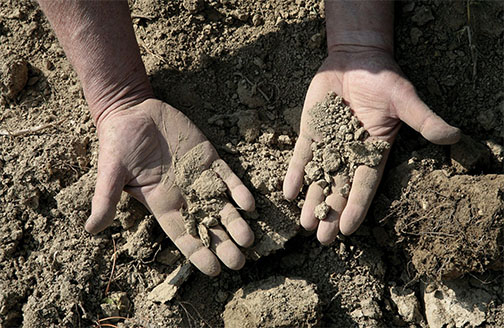 And talk a little bit about the terroir here, and maybe a bit more generally about the region and more specifically about your vineyards.
And talk a little bit about the terroir here, and maybe a bit more generally about the region and more specifically about your vineyards.
I can talk about the terroir of Serralunga, where we are. It is the oldest in the Barolo region because it was formed 12 millions years ago for the formation of Serralunga. It's very rich in clay and calcium carbonate, especially the calcium carbonate, which are the elements of distinction in comparison to the other soil of Barolo. And that helps a lot when we are talking about longevity, when we are talking about finesse and elegance in the wine. The fact that it is the oldest terroir formed in the Langhe, it means that the particles are very, very refined. So it's very porous, absorbs a lot of water, and this stratification that we have over here is very compacted stratification of coarse clay, of coarse calcium carbonate mixed to clay, but also sometimes some layers of sand. And this mixture makes the real difference in the region.
But the real difference in this specific area, between Serralunga and Sinio, where I live, is considering also the way that we work the soil. We can talk about the elements, but we can also talk about how alive my soil is. That's why it's important, the organic and especially the biodynamic philosophy, because the goal of the biodynamic philosophy is to have a soil more alive, richer in microorganisms, richer in small insects who help the roots of the vine to absorb better all the micro-elements, which we can then have in the wine and makes a difference.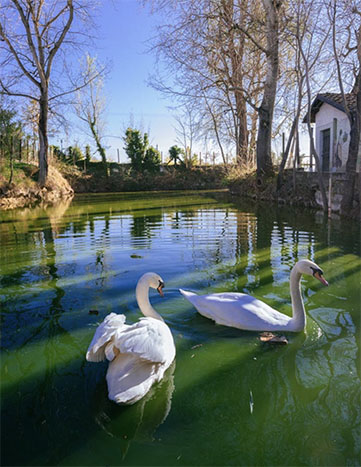 Enrico, talk a little bit about the varietals that you have here that you're working with.
Enrico, talk a little bit about the varietals that you have here that you're working with.
The varietals that I have here in my winery are basically the typical indigenous grape varieties of the region. So we have Nebbiolo, we have Barbera, we have a little bit of Dolcetto, but we have also one white indigenous grape variety from here that is quite rare called Nascetta. The age of the vines depends on the type of area. We have vines very young, but we have vines that are 20 to 30 years old. We have Barbera that was planted in 1944, and we still have 25% of this Barbera that we call "Zio Nando" because "Zio" in the Italian language, it means uncle and "Nando" is the nickname of Ferdinando, who was my father's uncle, who put in the ground this vineyard in 1944. So 20 to 25% of this vineyard is still original from that age.
And talk a bit about your philosophy of viticulture and your philosophy of winemaking.
My philosophy of viticulture has changed completely from 2009 when I started to convert the winery into organic and step by step to be helped also with the philosophy of biodynamics. We tried to build, and we were doing that, agricultural organism. We don't have to forget that we are in the Barolo region, in the Langhe hills, where the monoculture is very strong. As you can see, vineyards are everywhere, but in my winery, I decided to plant something else. So having oak trees, having fruit trees, we have planted more than a thousand trees in the last seven years. We have kilometers of rosemary, sage, a mix of bushes in the middle of the vineyards. We are sowing cereals in the middle of the vineyards, like all varieties of wheat, all varieties of corn. We make our own compost and you can see over there, we have a pond inside of our winery, a natural pond where we can use the pure water to do all the spraying (of biodynamic treatments).
We have a garden, we have a greenhouse, we have seven hectares of woods that somehow protect our winery. And that's built one ecosystem where the vineyard is the most important part of the system, of course, it is the part which generates more money, it makes wine, but to my point of view, the system is strong when you have more elements that help it. So my philosophy is to try to have a soil that is more alive, and to have a soil more alive, the goal is to have the vines less stressed. And that's why we need to decompact the soil using compost, using humus, and try to compact the soil as little as possible. In this way, we can have a viticulture more respectful to nature, but also to find a balance between the human being and nature.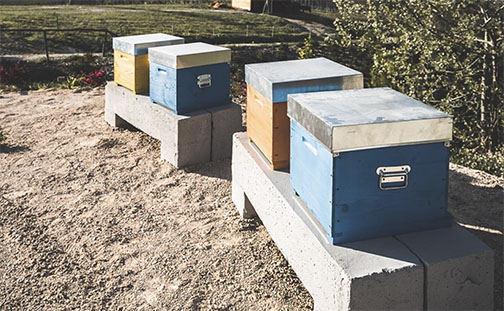 We just added to the system another important element, which are bees. We have six hives. I'm learning a lot. I don't know how to deal with hives, but step by step I'm learning. And it's really, really an interesting connection with another world.
We just added to the system another important element, which are bees. We have six hives. I'm learning a lot. I don't know how to deal with hives, but step by step I'm learning. And it's really, really an interesting connection with another world.
Fantastic.
In the cellar we are following the rules of the Demeter certification because we are the only biodynamic Demeter certified winery in the Barolo region. So in the cellar, we are very low in sulfates. We can use only benzonite for clarification, we filter before bottling with a very light filtration. Of course, we have oak because we produce Barolo, so we have Slavonian oak, Austrian oak because we don't like so much to have extra intense oak to our wines. We try to have a neutral oak to have a balance, especially in our Nebbiolos. And we try to work because the cellar was projected on two levels. We try to work with the gravity. We transfer the wines from upstairs to downstairs without pumps and that helps to have less oxidation. So the way how we work in the cellar is coherent with what we are doing also outside.
I've spoken to many winemakers that make biodynamic wines, and the thing they always talk about is that there's sort of a life to the wine. 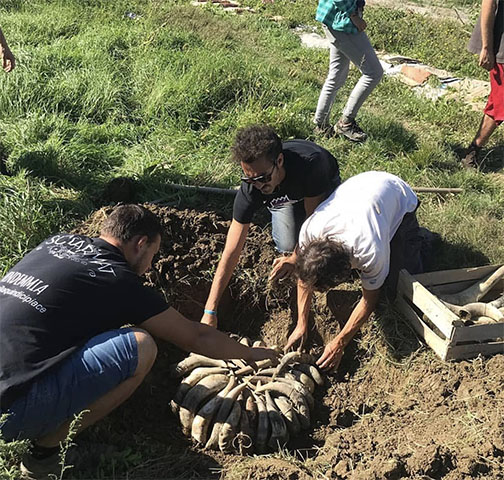 The feeling I have about my wines, when I started to change the way of thinking and focusing more on biodynamics or more respectful viticulture, first of all, was changing myself before I have the feeling for the wine. I had the feeling for myself and I had the feeling of the change of outside. So, and that first, step by step, I can see this change also in the wine. Of course, the big change, I think, will come 10 to 15 years from now, because I started in 2009 and I think, and strongly believe that the real change will be in 20 to 35 years. I know that is a long way, but we are used to being patient because we are a Barolo producer. So we have to be patient, even if I'm not so much, but the feeling that I have is that the wine when you drink it will be much more easy-drinking somehow.
The feeling I have about my wines, when I started to change the way of thinking and focusing more on biodynamics or more respectful viticulture, first of all, was changing myself before I have the feeling for the wine. I had the feeling for myself and I had the feeling of the change of outside. So, and that first, step by step, I can see this change also in the wine. Of course, the big change, I think, will come 10 to 15 years from now, because I started in 2009 and I think, and strongly believe that the real change will be in 20 to 35 years. I know that is a long way, but we are used to being patient because we are a Barolo producer. So we have to be patient, even if I'm not so much, but the feeling that I have is that the wine when you drink it will be much more easy-drinking somehow.
You feel more differences between vintages. You feel that the vines have a different color of leaves in comparison to the ones of those who I see are still working in another way. Of course, the vineyards are completely different, the soil is softer, the color of the vintage... Even if you don't know anything about biodynamics or anything about organics, and you walk in my vineyards, you see, especially in this period, when you go through April, May, June, July, it's completely different than other places, because you see the soil is alive, you see flowers, you see bees, you see butterflies. And these are also part of the bioindicators that we control every year. We catch butterflies, we catch wild bees and other types of bees to understand if they increase or decrease.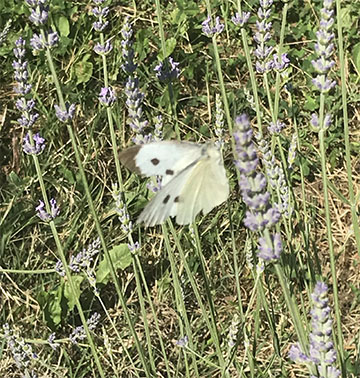 And that's fantastic because you see that, for example, if we introduce one simple row of lavender we are not only introducing one simple row of lavender. You have a place where you attract a lot of insects, a lot of microorganisms. Unbelievable. And it's just enough one row. We were planting in our 15 hectares of vineyards, more than five kilometers of biological corridors. So you can imagine in five, six, seven years, how many, let's say, organisms, we attract. So, that I think is extremely important. And the feeling that you have, especially the feeling that my workers have, because we can't forget that I was able to make what I was describing to you right now because I have workers who are part of the project, and it is the most difficult part. And when you see them happier, not only because they have a good salary, but because they go and work in a place that they like, it makes a difference.
And that's fantastic because you see that, for example, if we introduce one simple row of lavender we are not only introducing one simple row of lavender. You have a place where you attract a lot of insects, a lot of microorganisms. Unbelievable. And it's just enough one row. We were planting in our 15 hectares of vineyards, more than five kilometers of biological corridors. So you can imagine in five, six, seven years, how many, let's say, organisms, we attract. So, that I think is extremely important. And the feeling that you have, especially the feeling that my workers have, because we can't forget that I was able to make what I was describing to you right now because I have workers who are part of the project, and it is the most difficult part. And when you see them happier, not only because they have a good salary, but because they go and work in a place that they like, it makes a difference.
I interviewed a biodynamic winery owner from New Zealand, and he said that for him, the biggest benefit was that all of the people that worked for him believed in it. And because of that, the work was better and more precise and the wines were more precise.
I totally agree. Also, because they are more involved because each single parcel has a different history, each single parcel we treat in a different way. The fact that we have to stay below some limits, for example, of copper, it means that we have to spray when it is necessary to spray. When is it necessary to spray? We have to observe, and we need people, constantly, who observe. And when they have healthy grapes, that's also part of this observation and the workers, even if they are tractor drivers, even if they are the most humble people or less educated people, they know what is the right thing. And they know what is the truth. And that's fantastic. The relationship that I have with my workers is very important, even if it was the most difficult part, because at the beginning it was difficult to take them and to be part of this new way of thinking.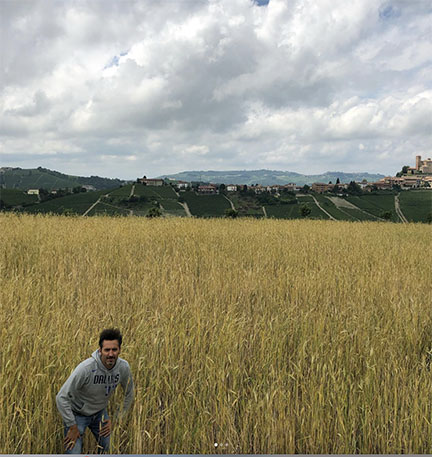 And why do you think it is that Piedmont doesn't have a higher percentage of organic and biodynamic winemakers?
And why do you think it is that Piedmont doesn't have a higher percentage of organic and biodynamic winemakers?
Piedmont, especially this area, has a very low percentage of organic and biodynamic producers because, and this is my personal opinion, you can sell wine anyway. If you produce Barolo the people open your door, I'm talking about a commercial point of view. So if you do the change, you do it because you feel it not because it's a fashion, it's not because it's trendy. I see this way of thinking illogic, not logic. I have a privilege to be here in the Barolo region and I have the privilege to have Barolo, so the minimum I can do is to work in this way, because we have a higher turnover in respect of other competitors, in other parts of Italy. And the minimum I can do is to be a leader and act like a leader. To me, raising the bar is very important and that's the way we try to do it.
And talk a little bit about how the region has evolved in terms of wine style. So in the '70s, you had this group that were labeled "The Barolo Boys" and they started using barrique and getting bigger scores. And the Barolo became one of the internationally recognized wines. How has the region evolved in terms of these two styles, modern and traditional?
The history of the style of wine of this region was changing in the '80s because everybody was making the wine in the same way, almost. In the '80s with the commercial parts, especially from the United States, with the big points and ratings in the big magazines, they affected our style of course, sometimes in a negative, but sometimes in a positive way. The positive part is that we were changing our oak barrels because they were too old. But on the other side, we were using too new oak barrels and we were changing the taste of our wines and the typicity of our wines was a little bit less important, and the wines were more similar, but it was a part of our history that I think was useful for the change that now we can see it. So this division of a separation between old style and modern style is much less important than before.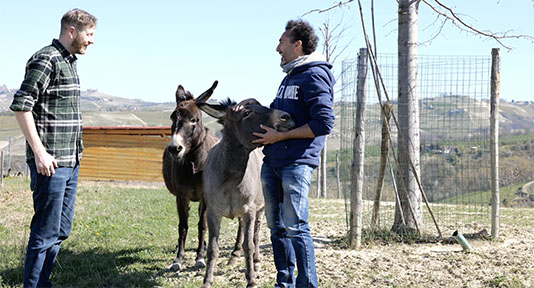 Now, the people are more focused on how you are sustainable or how you are less sustainable. But I think every time you try to categorize the producers it's always bad, because each producer has their own unique philosophy of making wine. I try to see the wine not like a final goal, but like a tool, like instruments to explain what I have in my mind. It's an instrument. It's a magic liquid that everybody who is sitting at a table, everybody is listening to you because you have a wine that I put in your glass. If I sell potatoes, probably you are not here interviewing me. And I feel a privilege. So I try to use the wine, like a symbol to explain to you a philosophy, a way of thinking. So that's why I think that to categorize the wine producers, especially now, it's difficult.
Now, the people are more focused on how you are sustainable or how you are less sustainable. But I think every time you try to categorize the producers it's always bad, because each producer has their own unique philosophy of making wine. I try to see the wine not like a final goal, but like a tool, like instruments to explain what I have in my mind. It's an instrument. It's a magic liquid that everybody who is sitting at a table, everybody is listening to you because you have a wine that I put in your glass. If I sell potatoes, probably you are not here interviewing me. And I feel a privilege. So I try to use the wine, like a symbol to explain to you a philosophy, a way of thinking. So that's why I think that to categorize the wine producers, especially now, it's difficult.
You have donkeys.
Another important part of the winery is the introduction also of animals. I know that in some parts of Italy, that's quite normal, not for the Barolo region. We have three donkeys. To be real biodynamic, we need to also have the animal presence. And at first I never thought to introduce animals inside of the winery, but if I have to come back, I can't live without animals in the winery. Of course, ideally I would've liked to have cows because they helped me a little bit more for the manure, but it's too complicated under the point of view of bureaucracy here in Italy. So donkeys are much easier to keep. And they're very empathic animals and they are very intelligent more than what you think.














